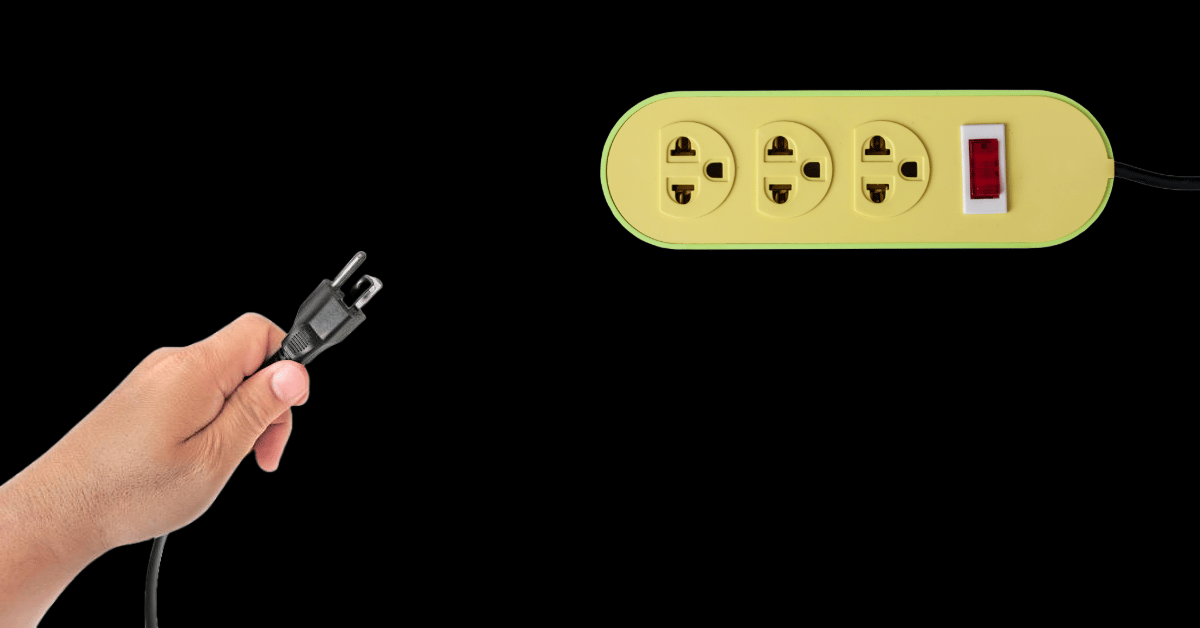
Hello good sir/madam, I’m a Nigerian prince and need your help.
Remember when internet scams were easy to spot (ok, maybe not for everyone, but still)? Those days have been and gone. Because now, AI makes it easy to replicate your partner’s face. Your child’s voice. Your ex’s likeness. And suddenly the internet becomes a place where technology is weaponised—often with no consequences. So, where do we go from here?
- Charlotte Ellis, Editor ♡
WHAT’S HAPPENING IN MARKETING TODAY?
Social media ruins the US Open, Rotten Tomatoes is a farce & CapCut integrates with LinkedIn (?)

Despite controversy, the US Open has officially been Coachella-fied.
Sometimes you do have to agree with the sentiment that once the social media girls get their hands on something… well, you know the rest. Growing up going to tennis with my grandfather, I’ve always known there were certain unspoken rules that weren’t to be broken: leave your seats only during changeovers, wait to clap or cheer, always return a foul ball, and for the love of god, no chattering during points. Ten-year-old me understood both the duty and privilege of being at the game. The game that is supposed to be a beautifully acoustic experience.
The squeaking of sneakers on the hard court, the grunts of players, the hum of the ball off the strings. All of which have been completely deadened by the inescapable and obnoxious chorus of the crowd of this year’s US Open. The irony is that the secret to the Open’s growing success is that the organisers have figured out how to pull in fans that don’t actually watch tennis. And such fans don’t care for etiquette, or tennis, when seated courtside. Instead, they care about being seen at the tennis. With the infamous $23 Honey Deuce, eating caviar topped chicken nuggets, wearing Paloma Wool, and talking about what’s on at Soho House afterward. If you actually like tennis, I’d say it’s probably better to watch it from home.
Wait, is Rotten Tomatoes rigged?
Matthew Belloni called it “simultaneously the most influential arbiter of quality in the movie business and a misleading mess.” Huh? Since WHEN. Apparently, the well-trusted source has morphed into a gig for Hollywood’s PR machine. According to Belloni, when you look at the initial reviews and press reactions for movies like Noah Baumbach’s Jay Kelly or Chloe Zhao’s Hamnet or Benny Safdie’s The Smashing Machine, RT scores them at a perfect 100. But once critics actually weigh in, the scores crash.
That’s because the site’s all-or-nothing fresh/rotten system leaves no room for nuance, and studios know how to game the hype cycle. Between embargoes, early access, and carefully seeded reviews, it’s less about honesty and more about marketing dressed up as taste.
CapCut adds… LinkedIn integration feature?
Welp. There’s a crossover episode I wasn’t expecting. If you’re a creator wanting to expand into LinkedIn, there ya have it, an in-app LinkedIn sharing button to facilitate easy posting. Now you can easily transition your CapCut creations across to the professional social network.
-Sophie Randell, Writer
Hey, do you like YAP?
If so, why not share it with a friend? The more we grow this thing, the more resources we can put into making it awesome for you. Even if every subscriber invites just 1 person to YAP, we’ll meet our growth goal for 2025. So, you in?
DEEP DIVE
AI makes the internet more dangerous than ever (so here’s what we do)

The internet has always had a questionable underbelly.
This should come as no shock to you. For every wholesome cat video or viral meme, there’s been a corner dedicated to exploitation, harassment, and a whole lot worse sh*t your pretty little mind could probably never conjure up.
But I’ll be honest. The recent uptick I’ve noticed in cyber-sex crimes, sextortion cases, deepfake nudes, data-mining scandals like the Tea app is f*cking scary. And it signals something new. It’s no longer just that the internet is dangerous; it’s mutating into something more predatory than we’ve probably ever seen, with AI as the accelerant.
Not long ago, online scams were almost laughable (unless you were 65+ and they got little old G-ma from her recliner.)
The infamous Nigerian prince. Dodgy “click here” pop-ups that you could spot a mile away. But now, the tools of deception have had a major upgrade.
AI can clone voices so accurately that parents are tricked into thinking their child has been kidnapped. Chatbots can impersonate friends, potential partners, or strangers with unnerving fluency. Deepfake tech can manufacture sexual images of anyone - celebrities, classmates, exes - with no consent, no recourse, and no clear path to justice.
If the internet was already sketchy, AI just handed it a fkn balaclava.
Sex has always been central to online culture, true. But that economy is being shaped into something a lot darker.
Synthetic porn and non-consensual image generation aren’t fringe anymore; they’re flooding platforms at scale. Teens are increasingly targeted in sextortion schemes, pressured into sharing images that are then weaponised against them.
Shame culture meets algorithmic scalability, and the result is catastrophic. Once upon a time, the worst a bully could do was leak your texts. Now, they can conjure a porn version of you out of thin air.
Part of the danger is psychological.
We’ve been conditioned to think scams look obvious. Grainy photos, bad grammar, offers too good to be true. But AI produces content that looks and sounds indistinguishably real. A FaceTime call from a “friend.” A video that looks like your partner. A message in flawless English. The cues we relied on to filter safe from unsafe have collapsed.
The scammer isn’t some shadowy man in a basement anymore. It’s an algorithm wearing your best friend’s face. Yeah. How are those shivers down your spine?
The Tea App scandal, where users gleefully uploaded their personal data under the pretence it was a “safe space”, was the clearest sign yet of 1. there’s literally no such thing and 2. how blasé we’ve become.
It was a Trojan horse for large scale data harvesting in the worst way possible.
And that’s the benign end of the spectrum. The same underlying logic: “give me access to your face, your photos, your personal life”, is exactly what fuels the darker industries of non-consensual porn and sextortion.
We were promised AI would make us more productive. And it has, but on the other side of the coin… it’s industrialising abuse.
Tech companies love to talk about “human flourishing.”
But innovation without guardrails always finds its most lucrative expression in exploitation. AI image generators that were demoed with “cute puppies” and cartoon characters are now used to mass-produce revenge porn.
Chatbots built for customer service double as grooming tools. Tools designed for creativity are co-opted for predation, faster than regulators can even define the crime.
It’s a pattern as old as the internet itself, but AI is different in scale and speed. We’ve moved from a world where predators needed skill, access, or insider knowledge, to one where they just need an app and a few prompts.
So, where do we go from here? Because this sh*t is feeling a little bleak.
The instinct might be to log off, delete the apps, retreat. But the internet isn’t something we opt into anymore, nor does any of this stop just because you went dark. It’s the infrastructure of daily life. Which means the solution isn’t avoidance. It’s literacy and resistance.
Media literacy: Assume fakes exist. Teach kids (and adults) that what they see online may not be real, no matter how convincing it looks.
Policy: Demand regulation that doesn’t wait for disaster. Laws around synthetic media, consent, and platform accountability are lagging behind by years.
Personal boundaries: Be stingy with your data, your images, your likeness. The more we feed these systems, the easier it is for them to weaponise us.
The chilling truth here is that what we’re seeing is what happens when technology evolves faster than ethics.
We’re left with an internet where safety is no longer a default setting. It’s something you have to fight for, something you have to teach, and something you have to actively maintain.
Online danger is no longer confined to the dark corners. It’s woven into the fabric of our feeds, hidden inside apps, lurking behind the faces of people we trust.
Right now, the internet feels like a predator factory.
Go safe, go well, Godspeed.
-Sophie Randell, Writer
TREND PLUG
But I’ll say arrivederci

This one’s for whoever thought a 4pm Friday meeting was a good idea (what were you thinking??).
The sound comes from Sabrina Carpenter’s song “Goodbye” where she drops the lyric: “But I’ll say arrivederci, au revoir…”. On TikTok, it’s become the ultimate way to signal you’re D-O-N-E with a person, or situation, with just enough flair to make it sting.
Creators lip-sync the lyric while overlaying text with scenarios that would immediately make them walk away. It’s petty, loyal, and very satisfying. For example:
How you can jump on the trend:
To the sound, film yourself lip-syncing the lyric, then add text describing the situation where you’d say goodbye on the spot. Keep it short, specific, and slightly over-dramatic for the best payoff.
A few ideas to get you started:
When the meeting runs over lunch
When the printer jams for the 3rd time today
When they admit they’ve never watched Shrek
- abdel khalil, brand & marketing executive
FOR THE GROUP CHAT
😂Yap’s funniest home videos: The bottle got IMMEDIATE payback
❤How wholesome: Speed visiting his old school
😊Soooo satisfying: Hot knife
🍝What you should make for dinner tonight: Garlic parmesan chicken loaded potatoes
ASK THE EDITOR

I've been making Reels for my candle business. How do I start getting some sales from my audience? - Terrance
Hey Terrance!
Social media is a brand-building tool rather than a sales tool. This means you need to concentrate on making content people want to watch rather than content that directly sells your products. Lucky for you, a handmade candle business lends itself to this. You could try creating videos showing your process, as this is a common type of content that lots of people like to watch. It also happens to be a natural way to showcasing your products.
If you do this consistently, you'll eventually build up an audience. They'll start asking where they can buy your products without you ever selling to them. Yes, it may take some time to get there. But you'll get much better long-term results than if you go in with the hard sell.
- Charlotte Ellis, Editor ♡
Not going viral yet?
We get it. Creating content that does numbers is harder than it looks. But doing those big numbers is the fastest way to grow your brand. So if you’re tired of throwing sh*t at the wall and seeing what sticks, you’re in luck. Because making our clients go viral is kinda what we do every single day.